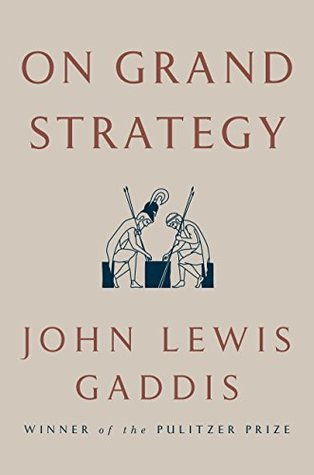More on this book
Community
Kindle Notes & Highlights
Victoria Nuland,
Isaiah Berlin,
developing an aversion to logical positivism (nothing means anything without reproducible verification), and hugely enjoying life.
“Who experts were—professional background, status, and so on—made scarcely an iota of difference,” Tetlock concludes. “Nor did what experts thought—whether they were liberals or conservatives, realists or institutionalists, optimists or pessimists.” But “[h]ow experts thought—their style of reasoning—did matter.” The critical variable turned out to be self-identification as “foxes” or “hedgehogs” when shown Berlin’s definitions of those terms. The results were unequivocal: foxes were far more proficient predictors than hedgehogs, whose record approximated that of a dart-throwing (and
...more
they were liberals or conservatives, realists or institutionalists, optimists or pessimists.” But “[h]ow experts thought—their style of reasoning—did matter.” The critical variable turned out to be self-identification as “foxes” or “hedgehogs” when shown Berlin’s definitions of those terms. The results were unequivocal: foxes were far more proficient predictors than hedgehogs, whose record approximated that of a dart-throwing (and presumably computer-simulated) chimpanzee.
Xerxes was right. If you try to anticipate everything, you’ll risk not accomplishing anything. But so was Artabanus. If you fail to prepare for all that might happen, you’ll ensure that some of it will.
Neither Xerxes nor Artabanus, therefore, would have passed F. Scott Fitzgerald’s test, from 1936, for a first-rate intelligence: “the ability to hold two opposed ideas in the mind at the same time, and still retain the ability
to function.”
We resolve these dilemmas by stretching them over time. We seek certain things now, put off others until later, and regard still others as unattainable. We select what fits where, and then decide which we
hedgehogs, some people are both.” He’d just been
need to combine, within a single mind (our own), the hedgehog’s sense of direction and the fox’s sensitivity to surroundings. While retaining the ability to function.
Steven Spielberg’s 2012 film Lincoln is dramatization at its best. It shows
the president, played by Daniel Day-Lewis, trying to make good on the claim, in the Declaration of Independence, that all men are created equal: what more praiseworthy cause could a hedgehog possibly pursue? But to abolish slavery, Lincoln must move the Thirteenth Amendment through a fractious House
of Representatives, and here his maneuvers are as foxy as they come. He resorts to deals, bribes, flattery, arm-twisting, and outright lies—so much so that the movie ree...
This highlight has been truncated due to consecutive passage length restrictions.
Lincoln recalls what his youthful years as a surveyor taught him: [A] compass . . . [will] point you true north from where you’re standing, but it’s got no advice about the swamps and deserts and chasms that you’ll encounter along the
Whether we approach reality from the top
down or the bottom up, Tolstoy seems to be saying, an infinite number of possibilities exist at an indeterminate number of levels, all simultaneously.
Tolstoy essay: History, only history, only the sum of the concrete events in time and space—the sum of the actual experience of actual men and women in their relation to one
another and to an actual three-dimensional, empirically experienced, physical environment—this alone contained the truth, the material out of which genuine answers—answers needing for their apprehension no special sense or faculties which normal human beings did not possess—might be constructed.31
there’s nothing unusual about the simultaneous presence, within our minds, of a short-term sensitivity to surroundings and a long-term sense of direction. We live with these opposites every day. The psychologist Daniel Kahneman attributes this proficiency to an unconscious reliance on two kinds of thinking. “Fast” thinking is intuitive, impulsive, and often emotional. It produces, when needed, instant action: it’s what you do to keep from running into things, or to keep them from running into you. “Slow” thinking is
Which is what grand strategy is meant to prevent. I’ll define that term,
grand strategy
for the purposes of this book, as the alignment of potentially unlimited aspirations with neces...
This highlight has been truncated due to consecutive passage length restrictions.
the purposes of this book, as the alignment of potentially unlimited aspirations ...
This highlight has been truncated due to consecutive passage length restrictions.
Thucydides’


